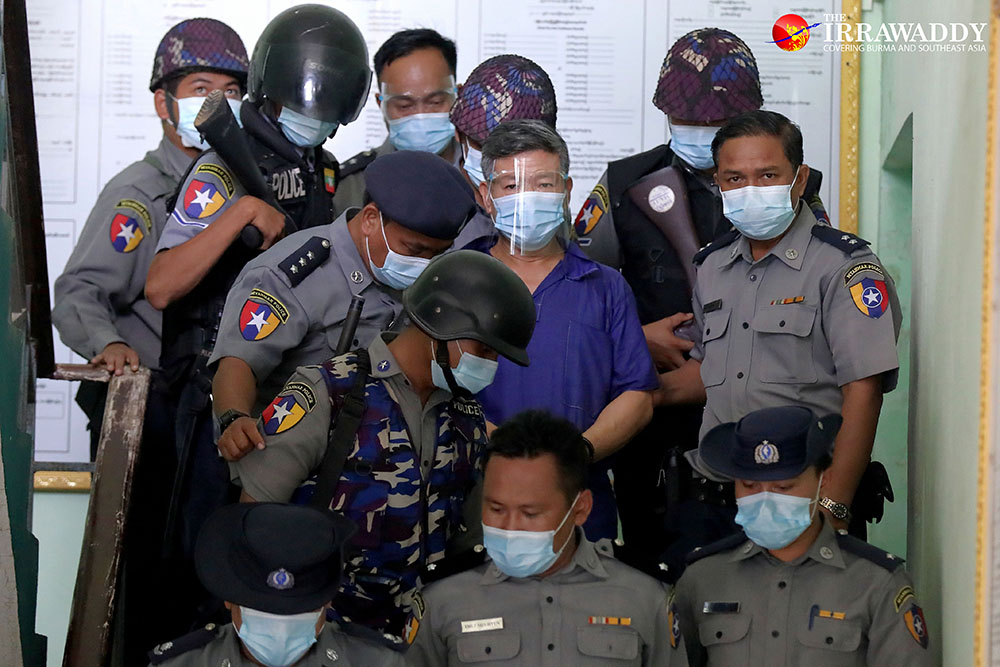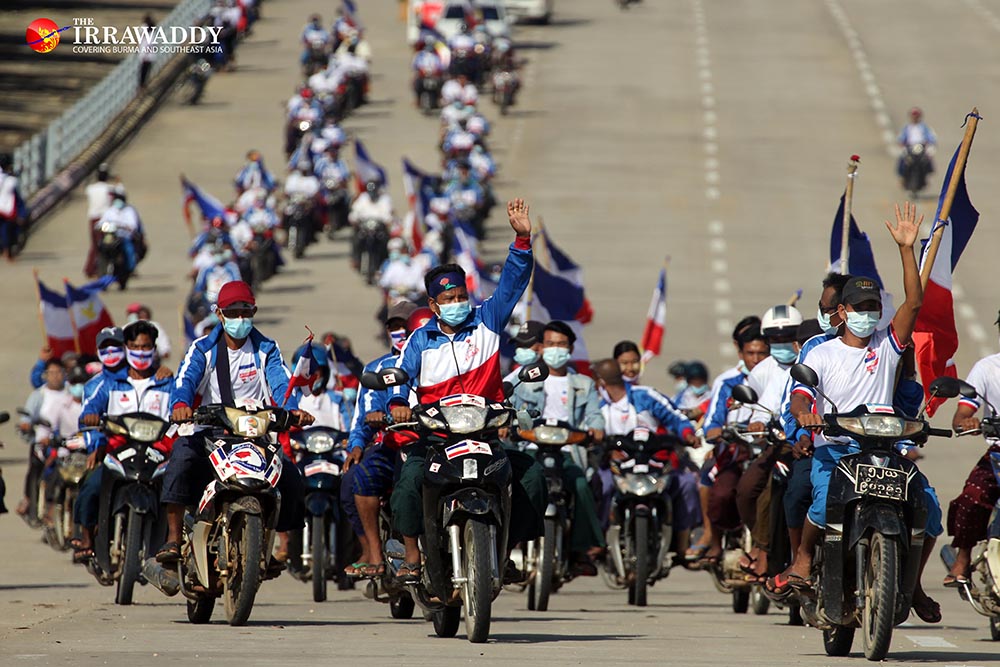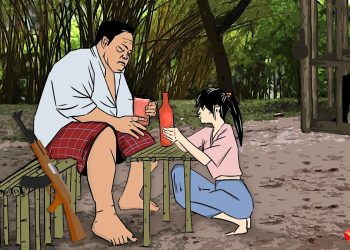YANGON—The controversial chairman of the United Democratic Party (UDP), who is currently detained on a fugitive warrant, was found to have breached anti-money laundering and Myanmar Central Bank laws while operating illegal businesses with links to Chinese criminals wanted by Chinese police for illicit financial transactions.
The warrant and other cases involving Michael Kyaw Myint are likely to lead to the dissolution of his political party, as they violate the country’s political party registration laws as well. Myanmar’s electoral authority, the Union Election Commission, has been reviewing his case.
Michael Kyaw Myint, who is also known as Michael Hua Hu, was arrested in Yangon last month for his escape from prison in 1999, while he was serving a 10-year sentence for flouting Myanmar’s business laws. Following his escape, he fled to Thailand, Norway and the US, where he sought political asylum before heading to Canada. In 2013, he entered Myanmar from China without facing any legal problems. Until his arrest in September, he was the head of the UDP, which has fielded as many candidates as the ruling National League for Democracy in November’s general election.
Since his detention, he has been under investigation by a “Special Unit” led by the country’s deputy police chief.

On Thursday, Myanmar President’s Office Spokesperson U Zaw Htay told the media that the investigation had discovered that Michael Kyaw Myint had no legal businesses from 2014 to 2020.
Following his return to Myanmar in 2013, Michael Kyaw Myint imported construction materials from China, before founding the Myanmar Kyaw Investment Group Co. Ltd. In 2015 alone, a total of 16.315 billion kyats (about US$12.5 million) was transferred to the company’s bank accounts from Chinese border towns like Ruili and Jiegao. The spokesperson said these transactions were made by Chinese people in those locations via illegal transactions like hundi—an informal exchange system in which paying someone in one location results in a payment being made by an agent somewhere else. He added that those Chinese also had criminal records and were wanted by authorities for illicit financial activities.
“During the investigation, it was found out that he didn’t have an export-import license to import the materials. The 16.315 billion kyats was not deposited in the accounts via official transactions, with no legitimate source provided for the income. Possessing money without proof of a legitimate source of income is illegal according to the anti-money laundering law,” U Zaw Htay said.
The Myanmar Anti-Money Laundering Law dictates that a person under investigation has a responsibility to prove clearly how they legally obtained their money. Those convicted of violating the law face up to 10 years in prison.
U Zaw Htay said that during the investigation, Michael Kyaw Myint’s Myanmar Kyaw Co. was found to have provided a total of more than 400 million kyats worth of loans with interest to 19 people from 2016 to September 2020 without having an official license to engage in such business—an apparent breach of the Myanmar Central Bank’s Financial Institutions Law. The law dictates that offenders face two to five years’ imprisonment.
Regarding his Union Democratic Party, Michael Kyaw Myint has spent 13.89 billion kyats on it so far, including providing 300,000 kyats to each of 716 UDP candidates for November’s election. (The party has fielded more than 1,000 candidates.)

“We have asked the Union Election Commission whether supporting a party with money that came from illegal transactions [from China] breaches the Political Party Registration Law,” U Zaw Htay said.
Article 6(f) of the law requires political parties to abstain from accepting and using directly or indirectly money, property, or other aid from the government of any foreign country, any religious organization, any other organization or any person.
Article 12(a) of the law warns that a party that fails to abide by any provision contained in Article 6 can be abolished by the UEC.
U Zaw Htay said the Ministry of Home Affairs forwarded its findings on Michael Kyaw Myint and his party to the electoral body on Wednesday.
“The UEC will have to decide [the fate of the UDP],” he said.
The Myanmar Political Party Registration Law states that the UEC’s decision is final and conclusive when it comes to implementation of the provisions of the law.
You may also like these stories:
NLD File Charges Against USDP After Campaign Clashes in Myanmar’s Ayeyarwady Region
Myanmar Migrants in Northern Thailand Vote for Peace, Progress in Their Homeland
Three Ruling Party Candidates Abducted by Armed Men in Myanmar’s Rakhine State

















